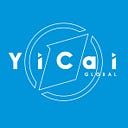Tesla, Other Top NEV Makers Stand to Gain as China Lifts Caps on Foreign Auto Industry Ownership
Li Suwan & Yang Haiyan
(Yicai Global) April 11 — Chinese President Xi Jinping’s plans to raise the limits on foreign ownership in the automotive sector spells good news for carmakers, especially those in the new energy vehicle market, industry insiders told Yicai Global following yesterday’s announcement by Xi that the country will lift the cap on foreign ownership in the auto sector .
Tesla Inc. and other leading electric-car makers will reap a windfall from the relaxation of restrictions, and Tesla is set to accelerate the setup of a wholly-owned unit in China, Zhang Zhiyong, an auto analyst, told Yicai Global yesterday, following Xi’s announcement, made in his address to the Davos-style economic conference that convenes world political and business leaders in Boao in China’s southern island province of Hainan to discuss issues affecting Asia and the world .
The Chinese government currently puts a 50 percent cap on foreign ownership in local auto joint ventures. Chinese investors have a greater say than their foreign counterparts in some JVs in the traditional fuel car industry, e.g. Dongfeng Commercial Vehicle Co. is a 55–45 JV between Dongfeng Motor Group Co. and AB Volvo Group, with the Chinese carmaker controlling. The proposed relaxation of foreign ownership limits will thus have little impact on traditional fuel-car JVs as the market landscape is unlikely to change greatly any time soon after years of cooperation between Chinese and foreign vehicle manufacturers, Zhang said.
Chinese and foreign auto producers have been plying joint ventures for more than 30 years, and the market landscape has already formed, Li Yanwei, an auto analyst, told Yicai Global, adding that Chinese partners will not suffer greatly if restrictions on foreign ownership do relax. Since an auto firm is only allowed to establish up to two JVs in China, car companies that have yet to set them up — Tesla, Mercedes-Benz maker Daimler AG, Bayerische Motoren Werke AG (BMW) and the Lexus luxury car division of Japan’s Toyota Motor Corp. — will benefit most from the new policy, Li noted.
The NEV market will undergo big changes, Zhang said. For example, since Tesla has insisted that its factory in China be wholly owned from fears of technology leaks, it put its plan to set up a local plant on the back burner, Zhang said, adding he believes Tesla will build its China factory as soon as restrictions loosen.
Cui Dongshu, secretary-general of China Passenger Car Association, agrees. Since setting up joint ventures has become an emerging trend in the NEV field, the relaxation of foreign ownership limits may affect existing partnerships in this field as well as rearranging the market terrain, he told Yicai Global.
Multinational auto manufacturers have initiated a new round of cooperation with domestic auto companies in the NEV field since last year. Volkswagen AG and Anhui Jianghuai Automobile Group Corp., Ford Motor Co., Anhui Zotye Automobile Co., BMW and Great Wall Motor Co., have all established JVs to make electric vehicles in China. However, Cui said he does not rule out the possibility that some international car giants will choose to set up wholly-owned NEV units in China if current ceilings rise.
